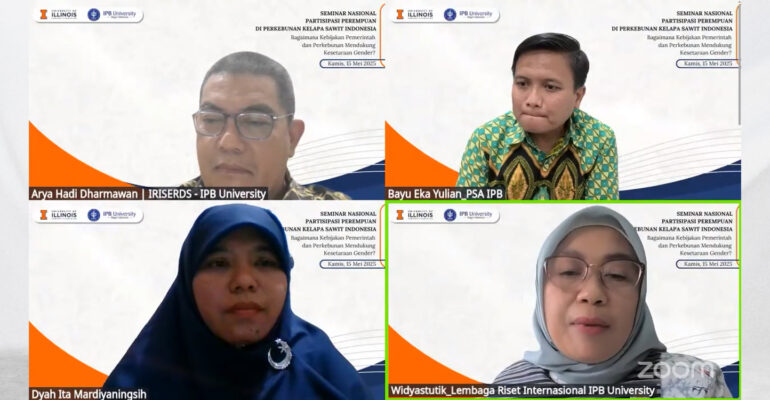IPB University Academics Highlight Gender Inequality in Palm Oil Industry, Urge Policies that Favor Women

Gender equality in the oil palm plantation sector was highlighted in a national seminar entitled “Women’s Participation and Indonesian Oil Palm Plantations: How Plantation Government Policies Support Gender Equality”.
The event was held online (5/15) by three study centers under the auspices of the International Research Institute for Social, Economic and Regional Development (LRI PSEK) of IPB University: Center for Agraria Studies, Center for Agricultural and Rural Development Studies, and Center for Gender and Child Studies.
This seminar presented three IPB University academics: Dr Dyah Ita Mardiyaningsih, Dr Widyastutik, and Dr Bayu Eka Yulian. The three presented the results of collaborative research with the University of Illinois on the role of women in the palm oil industry and the gender equality challenges they face.
Dr Dyah Ita Mardiyaningsih, Secretary of the Center for Agraria Studies at IPB University, emphasized the importance of gender-disaggregated data in formulating public policies. “Without fair data, women will continue to be marginalized from decision-making spaces,” she said.
She also highlighted that women palm oil workers experience a double burden and lack of recognition of their economic contribution.
The research, conducted in three districts (Asahan, Siak, and Kutai Kartanegara) involved 600 female respondents. The results showed that the majority of female workers only had an elementary to high school education. Dr Dyah emphasized the need for affirmative policies to increase women’s participation and reduce gender inequality.
Dr Widyastutik, a lecturer in Economics from IPB’s Faculty of Economics and Management, revealed that women are not only additional breadwinners but also the main pillars of the family economy.
“They are active in household investments such as savings, livestock purchases, and property. This shows women’s financial independence in the midst of limitations,” she explained. She recommended strengthening financial literacy and gender-based affirmative programs as important steps to empower women.
Meanwhile, Dr Bayu Eka Yulian, a lecturer at the Department of Communication Science and Community Development of IPB University raised structural issues in the palm oil industry that are masculine and not yet friendly to women’s basic needs.
He highlighted the limited facilities such as lactation rooms, proper toilets, and daycare centers. “Wage discrimination, sexual harassment, and lack of participation in decision-making are real challenges that must be addressed immediately,” he said.
All three speakers agreed that increasing women’s participation in the palm oil industry requires a holistic approach, from disaggregated data collection, financial literacy, to legal protection. The results of this research will be outlined in a policy brief for the government and companies, and published in a reputable international journal.
The main recommendations from this seminar include the formulation of affirmative policies, strengthening regulations, and providing a safe and integrated violence reporting system. It is hoped that these results can become a reference for the government and palm oil industry players to create a more equitable and inclusive work environment for women. (Fj) (IAAS/NRA)


